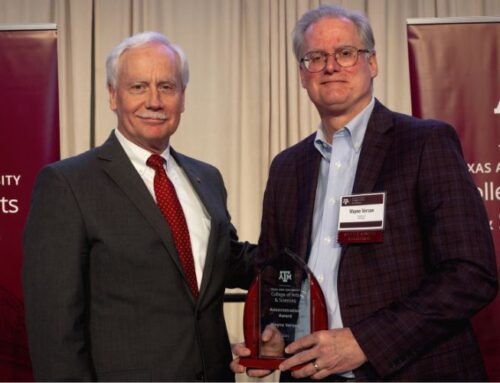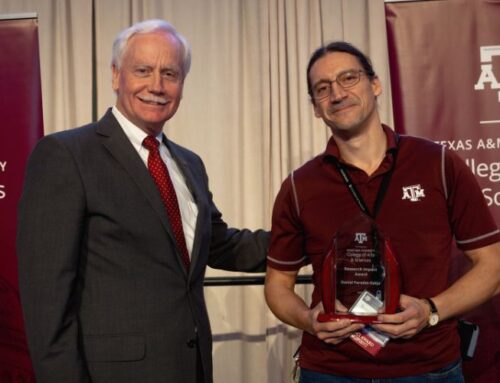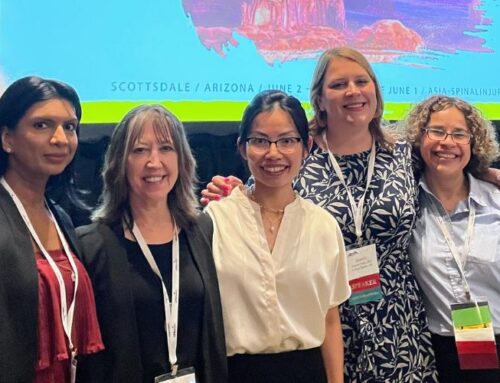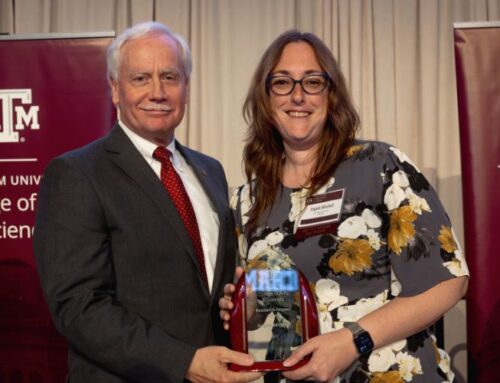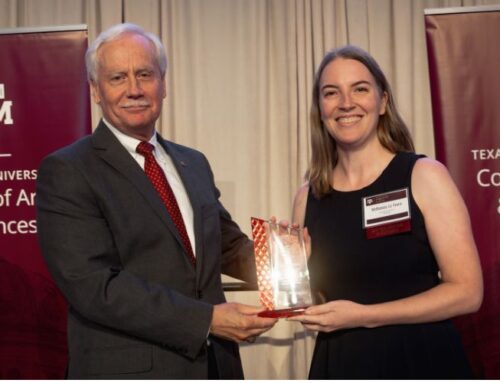Unraveling the Secrets of Evolution, One Chromosome at a Time: The Research of Dr. Heath Blackmon
By: TAMU Biology
Unraveling the Secrets of Evolution, One Chromosome at a Time: The Research of Dr. Heath Blackmon
In Dr. Heath Blackmon’s lab at Texas A&M University, the story of evolution is written in chromosomes. A leading evolutionary biologist, Dr. Blackmon investigates how genome structure evolves, with a focus on the origins and fate of sex chromosomes, including why they sometimes vanish entirely. His team studies a wide range of organisms to uncover universal principles of chromosome evolution.
 One of the lab’s signature ideas is the Fragile Y Hypothesis, which offers a new explanation for why Y chromosomes are frequently lost in some evolutionary lineages. The hypothesis shows how structural changes during meiosis can destabilize Y chromosomes over time. This insight helps explain why the most common human chromosomal disorders (i.e., Turner syndrome and Klinefelter syndrome) result from errors involving sex chromosomes.
One of the lab’s signature ideas is the Fragile Y Hypothesis, which offers a new explanation for why Y chromosomes are frequently lost in some evolutionary lineages. The hypothesis shows how structural changes during meiosis can destabilize Y chromosomes over time. This insight helps explain why the most common human chromosomal disorders (i.e., Turner syndrome and Klinefelter syndrome) result from errors involving sex chromosomes.
Beyond theoretical breakthroughs, Dr. Blackmon’s lab also builds tools that serve the broader scientific community. His team curates open-access databases such as the Tree of Sex and the Coleoptera Karyotype Database, consolidating tens of thousands of records on chromosome number and structure across the tree of life. These resources power global research on genome evolution, sex determination, and biodiversity.
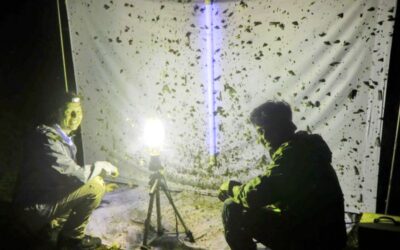
Why It Matters
Foundational research on sex chromosomes deepens our understanding of how life evolves, adapts, and diversifies. Dr. Blackmon’s work informs medical genetics, sheds light on key mechanisms driving biodiversity, and improves evolutionary models that guide conservation. By advancing this knowledge, we gain vital insight into both human biology and the natural world. “I’m driven by the fact that some of the most fundamental processes in biology remain surprisingly mysterious,” says Dr. Blackmon. “If we can understand how sex chromosomes evolve and sometimes fail, we gain insight not just into evolution, but into human health and the origins of genetic disease.”

